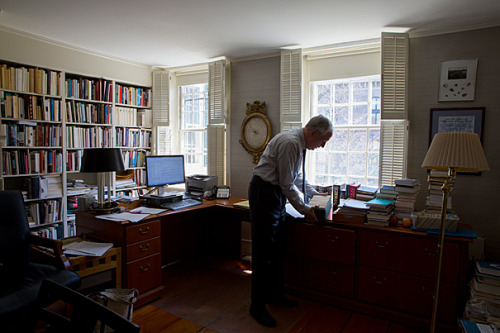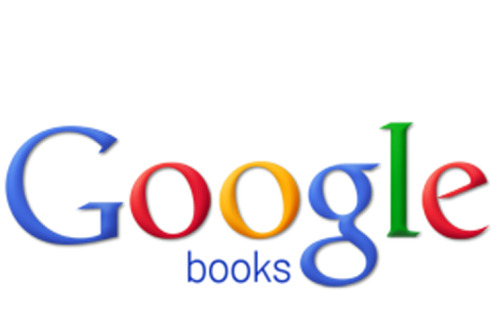
K. Mehmet Kentel
When the 20th century came to an end without the vindication of Fukuyama’s thesis for the “end of history” or the false panic of ‘Y2K’, Robert Darnton was accepted to be one of the leading figures of the fields of cultural history, anthropological history, and the history of books. Selections from his works, most notably The Great Cat Massacre, were included in almost every reader of historiography in many corners of the world. His writings on the history of books became influential over a wide geography, triggering works on the cultures of reading in varying historical societies.
As we are fast approaching the end of the second decade of the 21st century, Robert Darnton is now known not only as one of the most influential historians, but also as one of the most popular librarians, after directing the Harvard University Libraries for 8 years, and also as one of the ardent supporters of the democratic transformation of our reading culture against corporate attempts to privatize the digital use of books. The Case for Books: Past, Present, and Future, tells the story of how this esteemed historian turned into a public defender of books, through bringing together Darnton’s essays published mostly in the New York Review of Books.
Historian versus Google
Darnton, a cultural historian of Enlightenment and pre-Revolutionary France, came to the fore of the debate around digitization of books and public access in 2008 and 2009 as Google Books made agreements with the biggest research libraries in the world, and then ended up in trial with most of them over digitization of their collections. Darnton was then the newly appointed Director of Harvard University Libraries, and he started writing critical essays on the process, actively pushing for democratization of access to books, as essential parts of our global cultural heritage.
In these pieces, Darnton appears neither as a futurist who is pronouncing the doom of the conventional codex, nor as a nostalgist who laments the demise of good ol’ libraries and books. His discussion of the ‘information age’ is especially critical. After describing four fundamental shifts in ‘information technology’ (the advent of writing in 4000 BC, the invention of the codex in the beginning of the common era, the invention of moveable type in Western Europe in the 15th century, and lastly the internet’s emergence as a tool for global communication in the 1990s), he argues against widespread fear of the unstable nature of the production and speed of information in our present day: “I want to argue that every age was an age of information, each in its own way, and that information has always been unstable” (p. 23). With his examples of the unstable character of the corpus of Shakespeare or l’Encyclopédie, he is informative and persuasive.

He also rejects the proclamation of the death of traditional books and libraries, without rejecting the new roles they should be taking in this new age:
“Meanwhile, I say: shore up the library. Stock it with printed matter. Reinforce its reading rooms. But don’t think of it as a warehouse or a museum. While dispensing books, most research libraries operate as nerve centers for transmitting electronic impulses. They acquire data sets, maintain digital repositories, provide access to e-journals, and orchestrate information systems that reach deep into laboratories as well as studies… As a citadel of learning and as a platform for adventure on the Internet, the research library still deserves to stand at the center of the campus, preserving the past and accumulating energy for the future” (p. 41).
A Digital Republic of Learning
What Darnton wants to accomplish is to make the case for a digital republic of learning, realizing Enlightenment ideals in a digital world, without ignoring the realities of power imbalance and strong corporate interests. His understanding of these interests and their potential danger against the global culture of reading makes his writing increasingly critical of Google Books, and the essays compiled in The Case for Books attest this change in tone.
From methodological problems of book history, to technical and institutional matters such as directing research libraries in the digital present and seemingly mundane grant proposals, the array of interests and expertise Darnton showcases in the book is breathtaking. We even read his views – as a distinguished professor of one of the most prestigious institutions of higher education – on the academic job crisis in its early stages of the first decade of the 21st century, especially as it was experienced by young scholars of the humanities. The situation got only worse in the years after the publication of the book.
Composed mostly of Darnton’s writings in popular magazines, the book might not be embraced by some scholarly readers. But Darnton’s purpose, both in the individual pieces and in the book as a whole, is to engage actively with the reading public, making readers concerned about what the future of books holds, but also making them excited about all the new opportunities that lay ahead, as long as we manage to ‘democratize’ our culture of reading.

Crafts of the Historian
Darnton is especially insightful, and his prose delightful, when he talks about the craft of the historian, the historian of books to be more precise:
“You open a box, take out a folder, open the folder, take out a letter, read the letter, and wonder what connects it with all the other letters in all the other folders in all the boxes, not just in this repository but in all the archives everywhere.The overwhelming majority have never been read by researchers. And most people never wrote letters. Most human beings have vanished into the past without leaving a trace of their existence. To write history from the archives is to piece together what little we can grasp in as meaningful a picture as we can compose. But the result, in the form of a history book, can no more capture the infinity of experience than Augustine could comprehend the mind of God” (p. 61).
The book closes with a 1982 article, initially published in Daedalus, titled “What is the History of Books?” This influential essay proposes a methodology that connects authors, publishers, printers, suppliers, shippers, booksellers, binders, and readers. Following their traces, argues Darnton, should help historians “show that books do not merely recount history; they make it” (p. 206).
Robert Darnton’s books continue to make history, as we read, re-read, translate, and discuss them. Sometimes we are even given the opportunity to listen to the author talking about the issues he recounts in the book, and we are provided a chance to tell him how we read it, and to ask what has changed in the last decade or so. The reader and the author re-connect, adding a new layer to the histories made by the book. For us, today is that day. Koç University Press and the Research Center for Anatolian Civilizations Library host Robert Darnton, Levent Yılmaz, and Yaşar Tonta in the ANAMED Auditorium.
Robert Darnton, The Case for Books: Past, Present and Future. With a New Chapter on Google and the Digital Future. Public Affairs: New York, 2009.
Find the book at the Koç University Suna Kıraç Library.

